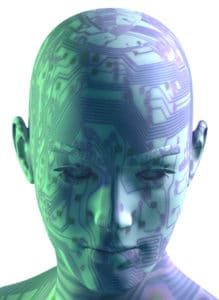
Artificial intelligence: human element still essential to legal practice
A typical law firm in the future will accommodate a new generation of disruptive technologies, such as virtual assistants, machine learning and automation, but legal services must not lose their human touch, a major Law Society report on technological innovation has urged.
The 115-page report, Capturing technological innovation, published today, predicted that the leading legal service providers across all sectors in the future “will likely embrace innovation as part of their corporate DNA, inspiring people with a vision for how processes can be redesigned and where the business could follow a completely new direction”.
It particularly sought to locate technology in the context of how lawyers might work with machines and harness technology in the service of the profession; how to pursue a digital focus but retain the human element – and embrace technology to support lawyers’ roles rather than adopt it for its own sake.
The author of the research, Dr Tara Chittenden, a senior researcher at the Chancery Lane research unit, found widespread support for technology as an enabler not an alternative: “Interviewees felt it was more important to augment the experts with technological systems, rather than replace them.”
The report advised that, as a starting point, firms should focus on clients rather than cutting-edge IT: “Legal technologies… offer exciting possibilities for how legal processes might evolve or be reinvented for the future. But such technologies… are [not] a fix for struggling business models and outdated processes.
“Instead, the better approach often comes from a close tracking of client needs and expectations, followed by identification of how technology can help a firm better serve these needs.”
It rejected the notion that technology itself was equivalent to innovation: “Technology by itself will not bring innovation to a firm. What will is a better understanding of business issues and the points where technology and business come together, and how that can be better understood and developed.”
Dr Chittenden predicted that over the next decade, “we will likely see business applications that include workflow automation but go well beyond it to incorporate support for the human cognitive processes as part of the overall business environment”.
She continued: “Increasingly firms will be tasked with managing an augmented workforce that includes a new generation of smart technologies, virtual assistants, algorithms, automated processes and distributed devices alongside flesh-and-blood staff…
“Interviewees speculated that future lawyers would be called on to combine human skills and computer skills. To do that, the lawyer must understand processes, how to improve them, and when to add technology.
“That does not mean the lawyer must become a process improvement expert, project manager, or a technologist. It does mean that a lawyer must become conversant in the ‘tools of the trade’ and perhaps maintain a sense of empathy toward coded colleagues if legal services are not to be fully digitised, but retain a touch of humanity.”
Dr Chittenden reported that among her interviewees, there was a recognition that a machine-led future still required lawyers: “For all of the technological machine learning, automation and virtual assistant possibilities and efficiencies, collectively interviewees were adamant that legal services should not lose the human touch.”
Nonetheless, she forecast that technology would transform legal practice from old models: “Legal businesses which use technology to deliver legal services focusing on smarter, more flexible resourcing, carrying out work in a more project management style and thinking in terms of process management and improvement, will look very different and work very differently to the pyramid law firm of the past.”
She concluded: “The importance of borderless platforms and digital ecosystems will grow in the coming years as massive movements such as the Internet of Things, big data and data analytics evolve.
“The ability of law firms to plug into these developments through technological innovation and collaboration will be an important factor for their success in future markets.”
Introducing the report, Law Society president Robert Bourns said: “It paints a picture of a legal sector engaging with new technology – advanced automation, machine learning and [AI] which will allow machines to augment the skills of human solicitors in ways that were unimaginable even a decade ago…
“It also lays bare the quintessential challenge of innovating in the legal sector. While three-quarters of firms surveyed [by the society] agreed that ‘innovation is critical to exploit opportunities and differentiate my firm’, more than half said they were more likely to wait for others to pioneer new technologies.”
He denied that solicitors were too slow to adapt: “The legal profession is sometimes characterised as resistant to change. This is unfair. We change to provide value to clients, but preserve essential elements of professional behaviour.”
The report includes a guide to innovating for the many firms that had not yet devised their strategy for a technological future.












YEP all you Legal Aid Solicitors with ever decreasing revenue, no travel or waiting costs and a criminal client base get hold of this technology it will innovate those long days when you cant get to prison or worse when you get there, the client wont leave his cell.
OR
The days when Probation haven’t got the report ready so you can sit there most of the day for free. Believe me all that will pay for this new technology and errr (that’s enough of that Ed)